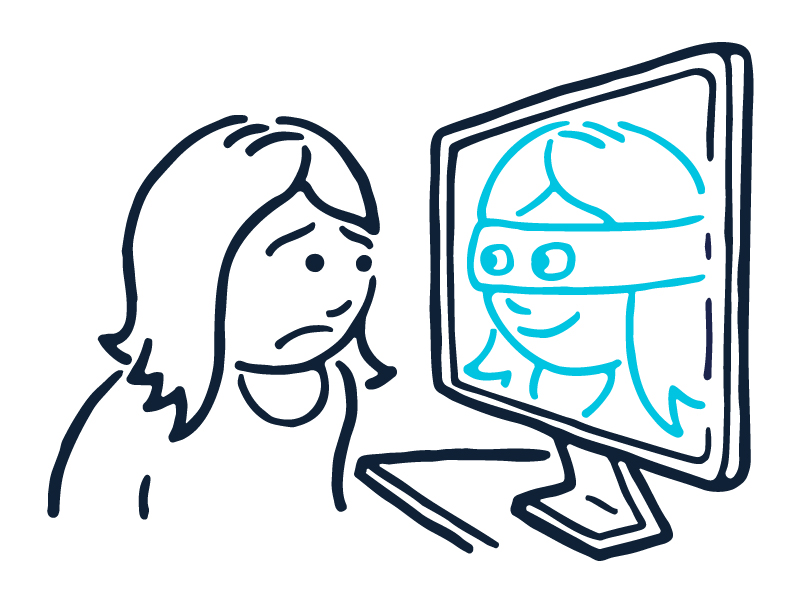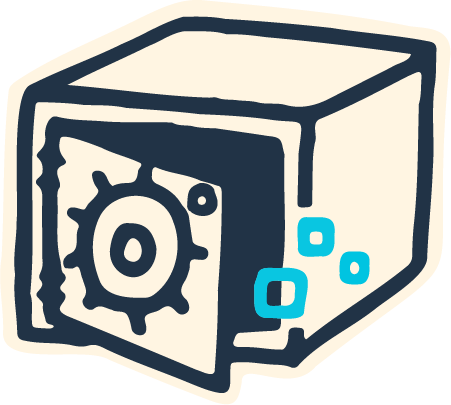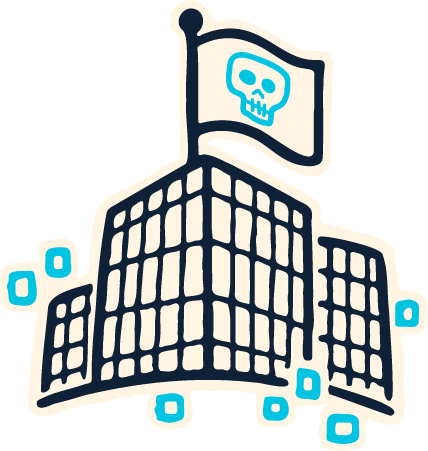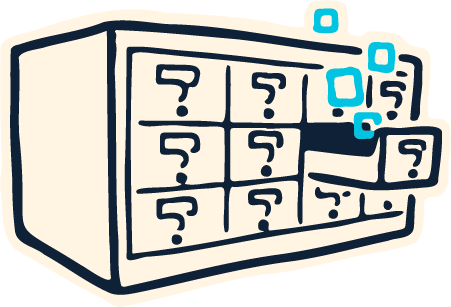It happens to all of us, it's true: data we share online can be exposed via a leak or a breach. Let's talk about it.

We’ve all heard nightmare stories about data breaches. In fact, I know I am one of the millions whose data was lost in the Equifax breach in 2017. That one is scary because credit reporting agencies collect so much information about us.
Lately, I’ve heard stories from my sister about having her credit card information stolen through an online service. And just a couple of weeks ago, I ordered a tote bag. Days later, I got an email saying the company had been hacked.
A couple weeks ago, I ordered a tote bag. Days later, I got an email saying the company had been hacked.
So I wanted to talk to my friend Erin Berman, who chairs the Privacy Subcommittee of the American Library Association’s Intellectual Freedom Committee, about how these things happen, and why they seem to be happening more and more often.
Transcript
Davis: Hello and welcome to the first in a series of videos from NYCDigital Safety: Privacy & Security. This project is funded by the Mayor’s Office of the Chief Technology Officer of the City of New York, and our project partners are Brooklyn Public Library, The New York Public Library, and Queens Public Library.
My name is Davis Erin Anderson. I’m Assistant Director for Programs and Partnerships at Metropolitan New York Library Council, and I’ll be talking with experts on data privacy, information security, and libraries on a bunch of upcoming videos. For this first series, we’ll be talking about why and how our data gets compromised, and what we can do about it. And I’m very excited to introduce our special guest for this conversation, Erin Berman.
Hi, Erin! Welcome and please introduce yourself.
Erin: Hey Davis! It’s great to be here. Thank you for having me. I’m Erin Berman. I am the chair of American Library Association’s Intellectual Freedom Committee’s Privacy Subcommittee. I know, quite a mouthful to say, but I’ve been serving in that role going on my fourth year right now. And I’ve been working on privacy issues in libraries for quite a bit now and leading national campaigns to provide support and resources to libraries of all kinds can really uphold those privacy values that we hold so dear.
Are you hearing from your library patrons about these types of issues? And what are you telling them?
Davis: So these privacy issues are happening more and more. Literally just the other week, I bought a tote bag online and then like three days later I got an email that said “guess what, your email and your password have been leaked.”
For those of you out there, is this happening to you? Are you hearing from your library patrons about these types of issues? And what are you telling them? We’re going to get into it in this series of videos.
So join us for video number two coming up shortly about how and why data breaches happen.
Further Reading
American Library Association’s Intellectual Freedom Committee’s Privacy Subcommittee
American Library Association's Intellectual Freedom Committee's Privacy Subcommittee
Relevant Terms
Data Breach
A data breach is an incident where information is stolen or taken from a system without the knowledge or authorization of the system’s owner. A small company or large organization may suffer a data breach. Stolen data may involve sensitive, proprietary, or confidential information such as credit card numbers, customer data, trade secrets, or matters of national security.
The effects brought on by a data breach can come in the form of damage to the target company’s reputation due to a perceived ‘betrayal of trust.’ Victims and their customers may also suffer financial losses should related records be part of the information stolen.
Hacker
A hacker is a person who creates and modifies computer software and hardware for either negative or positive reasons. Criminal hackers (cybercriminals) create malware in order to commit crimes.
Privacy
the right to be let alone, or freedom from interference or intrusion. Information privacy is the right to have some control over how your personal information is collected and used.
Data leaks
Data leaks are is the unauthorized transfer of data from within an organization to an external recipient. Data leaks can happen digitally or physically, as in the case of a stolen USB drive
Contributor Bios
- Davis Erin Anderson is Director of Programs and Partnerships at METRO Library Council.
- Erin Berman is a Division Director at the Alameda County Library in California and serves as the Chair of the American Library Association’s Intellectual Freedom Committee’s Privacy Subcommittee.
- This project is funded by the Mayor’s Office of the Chief Technology Officer, and produced in collaboration with Brooklyn Public Library, The New York Public Library, and Queens Public Library.


